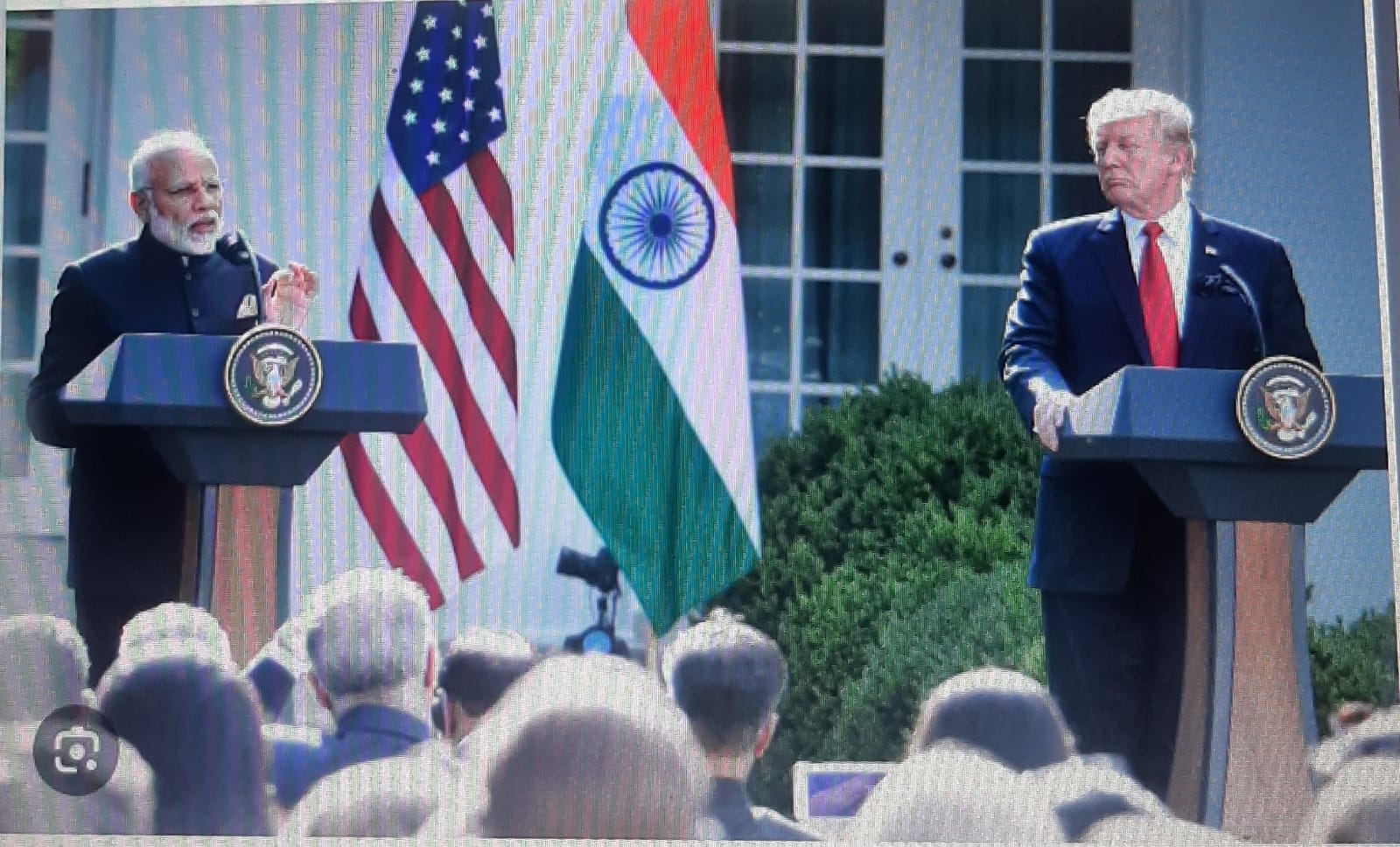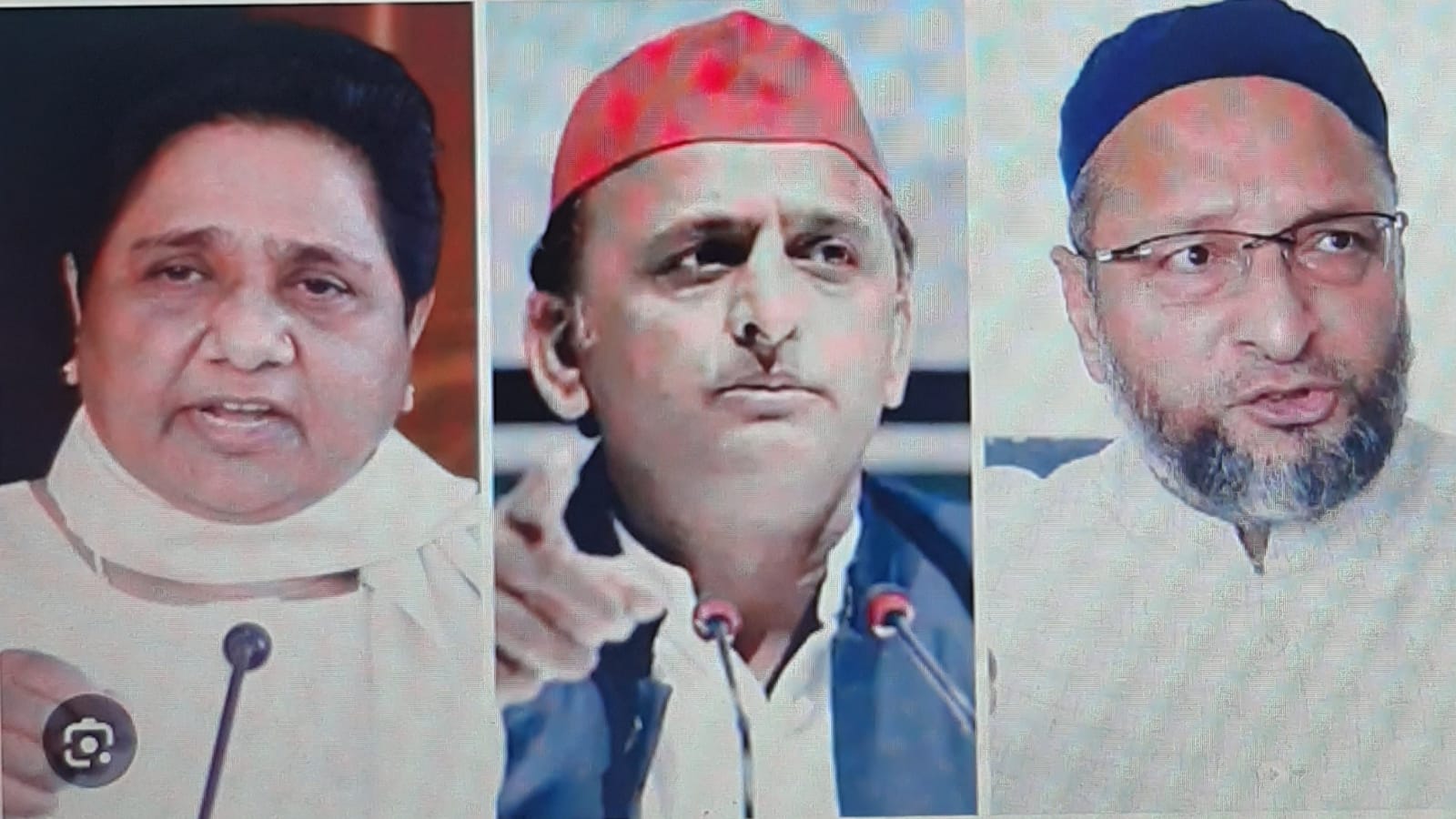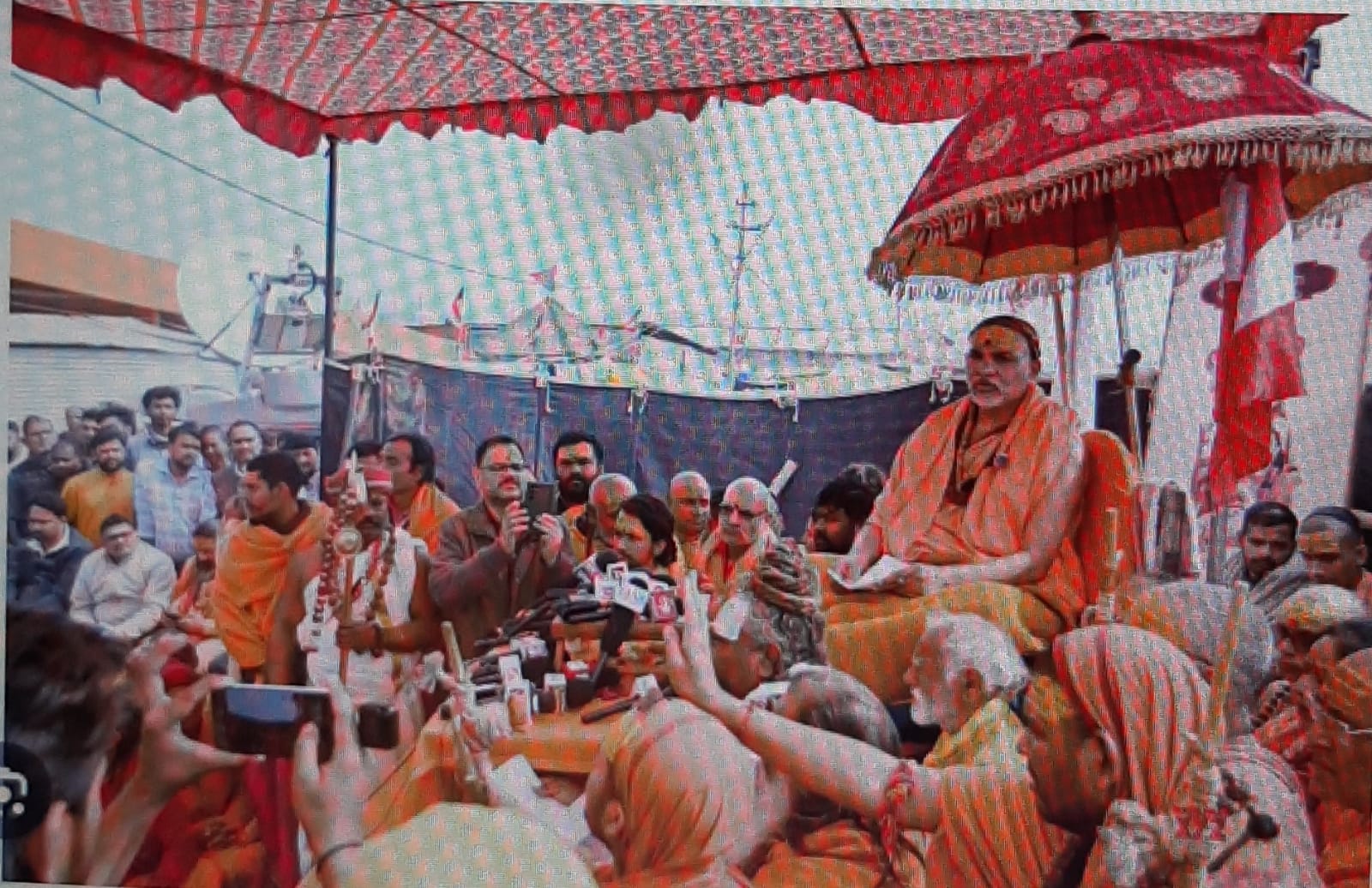
Minus honesty, there will be no ease of doing business. India will rot at the bottom of the list of corrupt nations till it decides that enough is enough -no more thugs at the top. Then business will flourish, industries will become common place, India will become a manufacturing hub, our eager hands will be suitably employed and their talents will show the path to the world, writes former IAS officer V.S.Pandey
Currently the entire world is roiled by “Trump Tariffs” and its disrupting impact on world trade. Most are dreading the negative impact on the free trade scenario which was built assiduously over several decades but is now on the verge of being dismantled. People are asking – where is WTO? Once considered the omnipotent regulator of world trade across the globe, it seems nonexistent currently amid the current tariff mess. Some saner voices are advising their governments to seize this opportunity to put their own houses in order.
Amid rising global trade tensions, many are exhorting India to seize the moment and pursue deep structural reforms instead of retaliating against the United States’ decision to impose a steep 50% tariff on Indian goods. Knowledgeable people are drawing a parallel to the 1991 economic crisis, which triggered liberalisation, and suggest that today’s tariff standoff could serve as a similar turning point for bold domestic reform.
The ongoing global trade disruptions are a kind of churning that, if responded to wisely, will certainly produce long-term economic benefits for India. Renowned industrialists are Citing the “law of unintended consequences,” and have pointed to how the tariff war has nudged Europe into higher defence spending and fiscal flexibility. The current trade war has led Canada to begin dismantling internal trade barriers to strengthen its economic resilience. Economists are advocating that our nation should respond to this situation by radically improving the ease of doing business, creating a single-window investment system, and unlocking tourism as a key source of foreign exchange and employment. They have called on the Government of India to respond with economic reforms instead of retaliation after US President Donald Trump announced a 50% tariff on Indian goods recently.
The ‘law of unintended consequences’ seems to be operating stealthily in the prevailing tariff war unleashed by the U.S. Certainly these ‘unintended consequences’ could become long-term positives for global growth,”. Now India has to create its own version of a virtuous consequence instead of merely reacting to external pressures.
To encourage indigenous enterprises and to attract global investors looking for stable and predictable policies, India must make it easier to do business. Experts have listed several areas for immediate reforms. These include improved liquidity for MSMEs, faster rollout of infrastructure projects, expanding the production-linked incentive (PLI) scheme, and rationalising import duties on manufacturing inputs. Out of these many suggested solutions to the current evolving situation, ease of doing business is a key factor that determines how friendly a country’s environment is for entrepreneurs and investors. It includes various parameters such as starting a business, dealing with permits, getting electricity, accessing credit, paying taxes, and resolving insolvency. Countries that perform well in these metrics not only attract foreign direct investment (FDI) but also foster a strong domestic entrepreneurial culture.
Although the World Bank’s Doing Business Report was discontinued in 2021 due to concerns over data integrity, many countries had consistently topped the charts based on strong fundamentals and reforms. All the top ten countries listed for ease of doing business which include countries like Singapore, South Korea, New Zealand , Denmark, United States, UK, Norway, Sweden etc. have salient common features- Fast and low-cost business registration; efficient bureaucracy; efficient legal system; low corruption. In all these countries, their policies encourage startups and innovation, especially in tech, agriculture, and tourism.
Ease of doing business is more than rankings—it reflects real economic conditions and opportunities. India does not lack rules or regulations in this regard . The concept of Single window clearance system for business and industries was put in place- in law and practice several decades ago. I, in several capacities, had the opportunity to implement them . My experience of several decades in government service has conveyed a predominantly notable lesson clearly to me – put any system on paper, it will fail because of one reason only – all pervasive corruption flowing from top to bottom in our system of governance. Corruption is the singular factor responsible for all the ills which plague our nation. We have good contract and criminal justice law, better than any country, good civil and criminal procedure codes and evidence act, but we have a very corrupt and inefficient justice delivery system which takes decades to decide cases. Our top courts have expressed their frustration over this perniciously delayed justice delivery system several times but they have failed to act collectively despite having all the authority at their command, to remedy the evil. The reason for the collective failure of our system, to my understanding is that our systems have failed collectively to tackle the problem of corruption which has eaten up the vitals of our systems. Now it seems we have even lost the courage and the will to fight it. Have we ever heard or seen any of our Chief ministers or Prime Ministers in the past decades, launching a campaign to end this menace of corruption in our public life? They give slogans but do nothing and have allowed dishonesty and corruption to flourish unchecked. How can there be ease of doing business when every functionary from top to bottom, including the political class, waits for their turn to grab their pound of flesh the moment they see any opportunity of money extraction. No one can stop India from becoming the most prosperous and advanced nation in the world if we rid our governments of all pervasive corruption. But why have all the governments – past and present, at the centre and states failed to do it? It is not difficult to answer. Those serving at the top or who had served there earlier, had never ever practiced honesty in their lives. If one practices dishonesty, lies, deceit in their lives and reaches where they are, expecting them to practice honesty now at this late stage of life, is foolishness.
Minus honesty, there will be no ease of doing business. India will rot at the bottom of the list of corrupt nations till it decides that enough is enough -no more thugs at the top. Then business will flourish, industries will become common place, India will become a manufacturing hub, our eager hands will be suitably employed and their talents will show the path to the world. We have to stop honouring men more than Truth. Only then will India become great again.
(Vijay Shankar Pandey is former Secretary Government of India)









